Qatar Accounting ERP: What Businesses Should Know to Prepare for 2025
Qatar is rapidly digitalising. Spurred by the Qatar National Vision 2030, digitization policies sponsored
by the government, and a more and more competitive trading and manufacturing sector, businesses find
that age-old accounting software, standalone packages, and spreadsheets just won’t do.
What was previously the preserve of big companies, ERP systems, is now becoming the norm for SMEs,
mid-market companies, and even family businesses. Cloud-based ERP accounting solutions are particularly
gaining popularity, providing a one-stop shop to manage accounting, HR, payroll, inventory, procurement,
and compliance in an integrated manner.
As 2025 dawns, Qatari companies can no longer afford to leave ERP implementation as a “future
consideration.” Rather, they need to look at it as a strategic imperative, one that addresses
compliance, enhances profitability, and provides the agility needed to succeed in a changing market.
What Is an Accounting ERP?
An accounting ERP system is an enterprise resource planning solution built with a robust financial
management foundation. It links your accounting functions to other critical business processes so that
information can flow freely between departments.
In Qatar, this is much more than mere automating bookkeeping. An up-to-date accounting ERP features:
- Automated financial reporting based on International Financial Reporting Standards (IFRS) and regulations in the region.
- Payroll integration with GRSIA (General Retirement and Social Insurance Authority) and WPS compliance.
- Inventory and procurement modules are directly linked to financial ledgers for real-time cost tracking.
By consolidating these capabilities in a single system, decision-makers gain accurate, real-time insights into business performance while reducing compliance risks and operational inefficiencies.
Why Qatar’s Regulatory Landscape Demands Modern ERP
The dangers of keeping your accounting processes on spreadsheets or antiquated, isolated software in Qatar go far beyond inefficiency. The business and regulatory landscape is changing rapidly, and those that fail to keep pace risk fines, delays, or missed opportunities.
Critical compliance and operating realities are:
- GRSIA & Payroll Conformity – Payroll reporting of Qatari nationals needs to be precise, timely, and GRSIA-conformant. Errors result in fines and damage to your reputation. ERP payroll modules handle calculations and submissions automatically.
- E-Invoicing Readiness – Neighboring Saudi Arabia’s e-invoicing requirement is indicative of where the GCC is going. A Qatar-ready ERP system with e-invoicing functionality puts you ahead of the competition.
- Data Security & Hosting Requirements – With stringent data privacy regulations and increasing interest in localized or regionally compliant cloud hosting, your ERP needs to provide strong data security and hosting that complies with Qatari regulations.
The Business Case: How Accounting ERP Improves Profitability
A common misconception is that ERP is just an accounting upgrade. In reality, a well-implemented accounting ERP has a measurable impact on profitability.
Here’s how it directly contributes to better financial performance:
- Reduced Manual Errors – Automated entries, reconciliations, and validations minimize costly mistakes that can distort financial reporting.
- Improved Cash Flow Visibility – Real-time dashboards provide a clear view of receivables, payables, and liquidity, enabling better cash management.
- Stronger Inventory Control – Connected inventory management ties stocks to purchasing and selling, preventing overstocking or stockouts at excess cost.
- Faster Decision-Making – Consolidated data allows managers to review profitability by branch, customer group, or product category without waiting for people to generate reports.
Common ERP System Myths in Qatar – And the Reality
ERP systems are now a vital driver of efficiency and growth for companies across the globe, but many Qatar businesses, especially SMEs and mid-market companies, are slow to adopt them. This reluctance usually stems from outdated myths and misconceptions about cost, complexity, and applicability.
In a market that’s fast digitizing, according to Qatar National Vision 2030, these myths can hinder businesses from realizing their operational efficiency to keep up with competition.
Myth 1: ERP Systems Are Only for Large Corporations
ERP systems were viewed for years as the province of international giants with multimillion-riyal budgets and trained IT staff. This image was developed in the early 2000s, when ERP system implementations involved massive infrastructure investment, intricate server configurations, and months of tuning.
Reality: Cloud-based ERP systems have revolutionized the game. The current ERP system is no longer a huge piece of hardware that needs to be purchased, it is rather a modular, subscription-based, and online-hosted application that makes enterprise-level functionalities accessible to businesses of all sizes, from a 20-employee trading company to an expanding manufacturing facility. For Qatari SMEs, this translates into being able to handle finance, HR, inventory, payroll, and customer information from one platform without going over budget.
Myth 2: ERP Implementation Takes Years and Disrupts Operations
Perhaps the most prevalent fear among Qatari business leaders is that implementing an ERP system will disrupt day-to-day operations for months, perhaps years. Many recall hearing stories about long, costly ERP deployments in the past.
Reality: Today’s ERP system vendors, particularly cloud-based providers, can implement systems in weeks, not years. Since much of the configuration, data migration, and user training occurs online, downtime is negligible. Employees can usually keep using current processes until the new ERP system becomes operational, minimizing the threat of disruption to business operations. In industries such as trading and manufacturing, where any hesitation can impact revenue, this pace and convenience make ERP implementation significantly less daunting.
Myth 3: ERP Systems Are Too Technical for Non-Technical Staff
There is a general perception that ERP systems are highly technical and need employees to be skilled in IT. This fear usually holds people back, thinking that training expenses and learning curves will be too high.
Reality: ERP solutions today are designed with user-friendliness. Several of them include Arabic-language interfaces, role-based dashboards, and streamlined workflows specific to various departments. In Qatar, where organizations usually have multilingual and diverse workforces, contemporary ERP solutions make sure that employees working in finance, HR, purchasing, or sales can use the system without extensive training. Rather than bogging down teams, the ERP system is turned into an easy-to-use daily companion that minimizes errors and accelerates work.
Myth 4: ERP Systems Are Too Costly for SMEs in Qatar
Price is usually the largest obstacle for small and medium enterprises contemplating an ERP system. Business owners are concerned about high initial licensing costs, infrastructure spending, and unseen expenses.
Reality: Cloud ERP models have changed the cost structure from huge capital outlay to reasonable monthly or yearly subscriptions. Most ERP vendors in Qatar today provide tiered pricing, enabling SMEs to begin with basic modules and then increase features as they expand. This flexibility means that businesses only pay for what they utilize, making the ERP system a scalable investment and not a gamblesome financial leap.
Cloud vs. On-Premise ERP in Qatar
Although many companies in Qatar continue to opt for on-premise ERP solutions, the trend is moving firmly to the cloud, particularly among SMEs and medium-sized businesses.
Cloud ERP
- Advantages: Reduced initial cost, scalability, access from anywhere, automatic updating, and integrated disaster recovery.
- Disadvantages: Reliant on internet connectivity (although regionally hosted cloud services somewhat reduce this risk).
On-Premise ERP
- Advantages: Total control of infrastructure, possibly better suited for very customized workflows.
- Cons: High capital expenditure, constant upkeep, restricted mobility, and slower upgrades.
Market Reality in Qatar
Most new rollouts are cloud-first due to lower expense, quicker deployment, and superior compatibility with remote work tendencies.
Must-Have Features in a Qatar-Ready Accounting ERP
Selecting an ERP that will function worldwide is not sufficient, it has to be adapted for Qatar’s legal, linguistic, and operational realities.
Key features to focus on:
- Arabic-language interface in accounting, HR, and CRM modules.
- GRSIA-compliant payroll with automatic WPS file generation.
- Real-time multi-branch financial dashboards.
- Integrated inventory for trading and manufacturing companies.
- CRM-ERP integration to relate customer activity with financial results.
- Local support with Arabic-speaking consultants.
Common Challenges in ERP Implementation in Qatar
Although the ROI of ERP implementation is robust, it may be a rough ride to successful implementation if not well-handled.
The top challenges are:
- Resistance to change among employees who are used to legacy systems.
- Complicated data migration, particularly with decades of unstructured accounting records.
- Requirement for customization to address local compliance regulations and distinct workflows.
- Selecting a vendor that lacks solid in-country knowledge and cause misalignment.
Best Practices for ERP Success in Qatar
To guarantee your ERP implementation yields sustainable results:
- Establish clear goals – Move past “going digital” and establish quantifiable success measures.
- Engage stakeholders early – Finance, HR, operations, and IT must be aligned from day one.
- Choose a local-savvy vendor – A partner familiar with Qatari regulations and market realities saves both time and money.
-
Prioritize user training – Offer comprehensive training in Arabic and English to improve adoption.
- Roll out in phases – Start with core accounting, then add HR, inventory, and CRM modules.
The 2025 Imperative for Qatar’s Businesses
As Qatar heads into 2025, ERP adoption will identify the leaders from the laggards. Organizations that adopt ERP as a strategic enabler rather than a software upgrade will be better equipped to meet regulatory requirements, streamline operations, and make quicker, better-informed decisions.
For SMEs, mid-market businesses, and even long-standing family firms, cloud-based accounting ERP is no longer a choice. It’s a competitive imperative in a market characterized by speed, compliance, and digitally driven customer expectations.


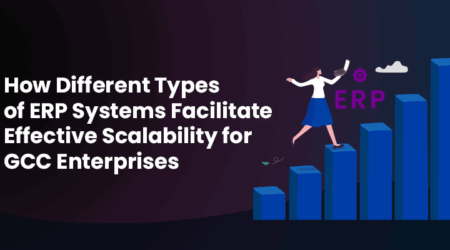
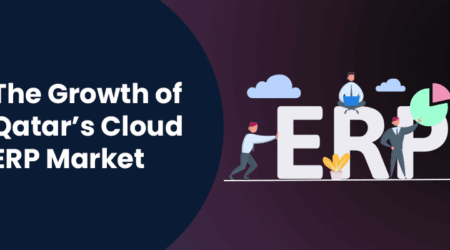
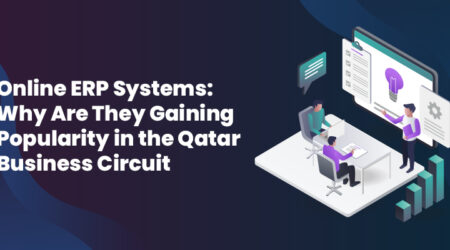

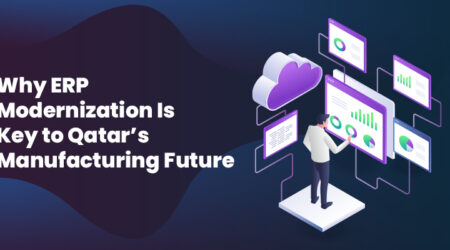
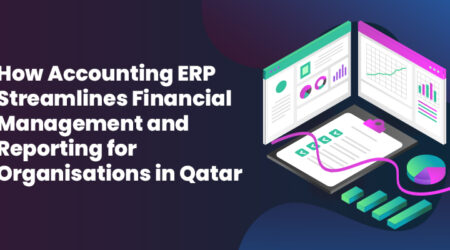
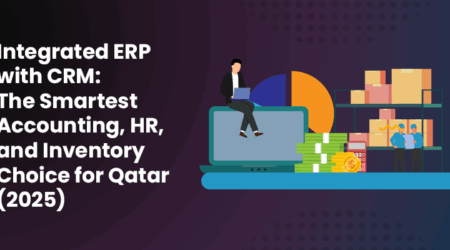
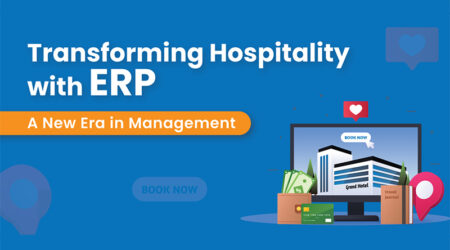
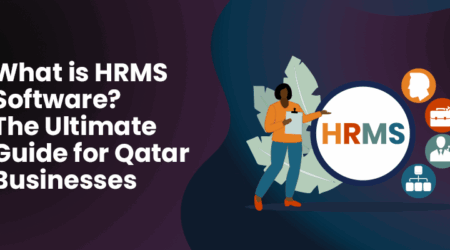
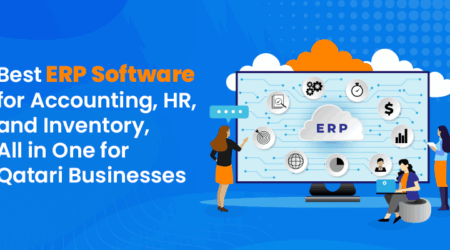
Leave a Reply